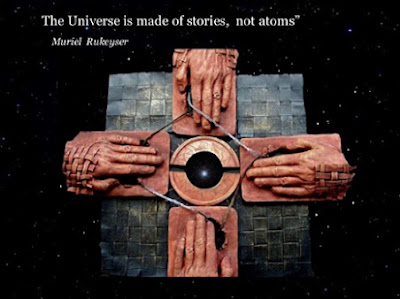“5 Painfully Obvious Truths
We Tend to Forget in Hard Times”
by Angel Chernoff
“This is going to have a beginning, a middle, and an end.
We are going to get through this, I promise,
and we’re going to get through it together. “
- Dr. Jon LaPook
“You know how you can read or hear something dozens of times in dozens of different ways before it finally sinks in? The little truths listed below fall firmly into that category – timeless life lessons that many of us likely learned years ago, and have been reminded of ever since, yet for whatever reason we tend to forget in the heat of the moment. This, my friends, is my attempt at helping all of us, myself included, “get it” and “remember it” once and for all, especially as we collectively cope with the evolving reality of economic and life circumstances.
1. Life is short, and nothing is guaranteed. We know deep down that life is short, and that death will happen to all of us eventually, and yet we are infinitely surprised when it happens to someone we know. It’s like walking up a flight of stairs with a distracted mind, and misjudging the final step. You expected there to be one more stair than there is, and so you find yourself off balance for a moment, before your mind shifts back to the present moment and how the world really is.
LIVE your life TODAY! Don’t ignore death – or the imminent dangers now becoming obvious – but don’t be afraid of life either. Be afraid of a life you never lived because you were too afraid to take positive action today. Death is not the greatest loss in life, neither is illness. The greatest loss is what dies inside you while you’re still alive and well. Even in these difficult times, be bold, be courageous, be a scared to death, and then take the next step anyway. Just change the way you do it.
Invest your heart and soul into whatever you have right in front of you. Bring passion into otherwise ordinary moments. You don’t have to be surrounded by lots of people. You don’t have to be going anyplace new. You can distance yourself and still passionately engage in each moment.
2. Everything will change again soon. Embrace change and realize in many ways it’s necessary. It won’t always be obvious at first, but in the end most forms of change are worthwhile because they force us to grow. So keep yourself in check right now.
What you have today may become what you had by tomorrow. You never know. Things change, often spontaneously. People and circumstances come and go. Life doesn’t stop for anybody. It moves rapidly and rushes from calm to chaos in a matter of seconds, and happens like this to people every day. It’s likely happening to someone nearby right now.
Sometimes the shortest split second in time changes the direction of our lives. A seemingly innocuous decision rattles our whole world like a meteorite striking Earth. Entire lives have been swiveled and flipped upside down, for better or worse, on the strength of an unpredictable event. And these events are always happening – as they are right now.
So just remember, however good or bad a situation is now, it will change. That’s the one thing you can count on. Accept it. Breathe. Be where you are. You’re where you need to be right now. There’s a time and place for everything, and every hard step is necessary. Just keep doing your best, and don’t force what’s not yet supposed to fit into your life. When it’s meant to be, it will be.
3. Changing your response is what puts you back in control. Have patience with everything that remains unresolved in your head and heart. And realize that patience is not about waiting, but the ability to keep a good attitude while working hard to stay true to your intuition and values. This is your life, and it is governed by your choices. May your actions speak louder than your words. May your daily choices preach louder than your lips. May your inner sense of satisfaction be your noise in the end.
And if your present life only teaches you one thing, let it be that taking a passionate leap is always worth it. Even if you have no idea where you’re going to land – even when there are so many unknowns – be brave enough to stand up and listen to your heart. Remember that the most powerful moments in life happen when you find the courage to let go of what can’t be changed. Because when you are no longer able to change a situation, you are challenged to change yourself – to grow beyond the unchangeable. And that changes everything! (Marc and I discuss this in more detail in the “Passion and Growth” chapter of
“1,000 Little Things Happy, Successful People Do Differently.“)
4. Life’s storms can be a great source of strength. Hard times are like strong storms that blow against you. And it’s not just that these storms hold you back from places you might otherwise go. They also tear away from you all but the essential parts of your ego that cannot be torn, so that afterward you see yourself as you really are, and not merely as you might like to be.
Ultimately, you realize you are here to endure these storms, to sacrifice your time and risk your heart. You are here to be bruised by life. And when it happens that you are hurt, or betrayed, or rejected, let yourself sit quietly with your eyes closed and remember all the good times you had, and all the sweetness you tasted, and everything you learned. Tell yourself how amazing it was to live, and then open your eyes and live some more.
Because to never struggle would be to never grow. You must let go of who you were so you can become who you are. Again, it is within the depths of the strongest and darkest storms that you discover within you an inextinguishable light, and it is this light that illuminates the path forward.
5. You don’t need all the answers right now. Accept the feeling of not knowing exactly where you are going, and train yourself to love and appreciate this sensation of freedom. Because it is only when you are suspended in the air, with no destination in sight, that you force your wings to open fully so you can fly. And as you soar around you still may not know where you’re traveling to. But that’s not what’s important. What’s important is the opening of your wings. You may not know where you’re going, but you know that so long as your wings are spread, the winds will carry you forward.
Truth be told, some of the greatest outcomes that transpire in your life will be the ones you never even knew you wanted. As long as you keep your mind open to new perspectives and yourself moving forward, there really are no wrong turns in life, only paths you didn’t know you were meant to travel. And you never can be certain what’s around the corner. It could be everything, or it could be nothing. You keep gliding steadily forward, and then one day you realize you’ve come a long way from where you started.
All details aside, someday all the pieces will come together. Unimaginably good outcomes will likely transpire in your life, even if everything doesn’t turn out exactly the way you had anticipated. And you will look back at the hard times that have passed, smile, and ask yourself… “How in the world did I get through all of that?”




















